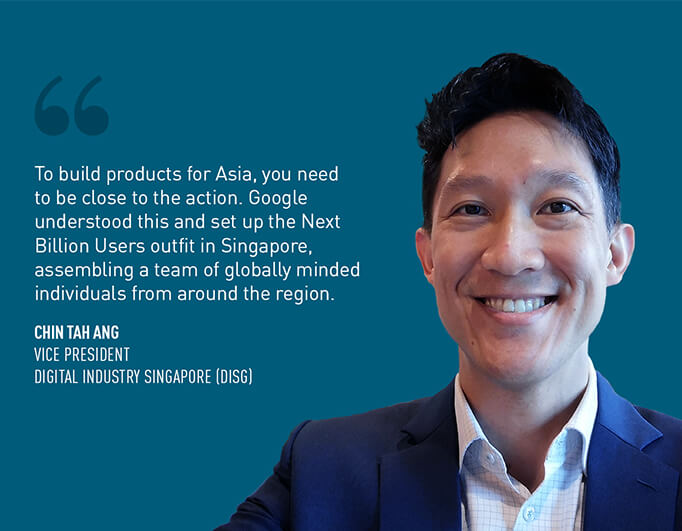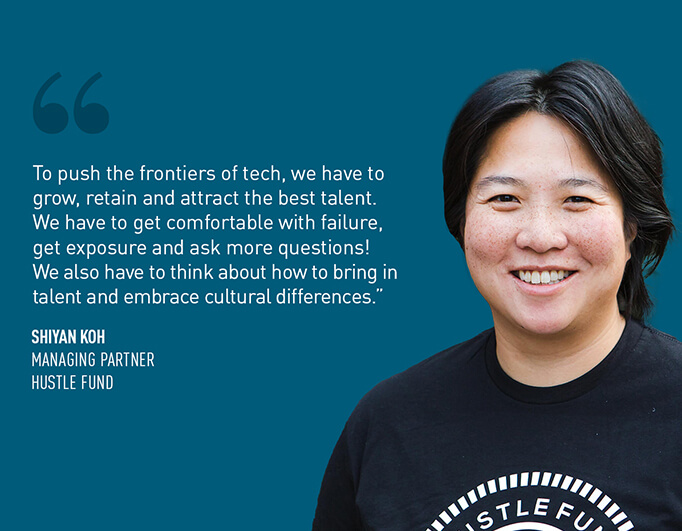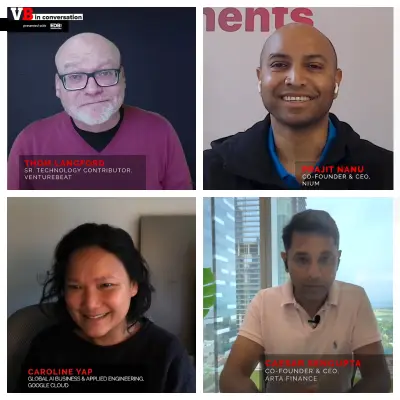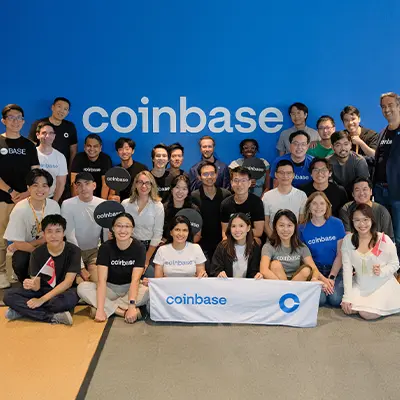Southeast Asia (SEA) alone has over 600 million consumers and an emerging middle class, much of them young and digital natives – and Singapore is at the heart of all the action. As a bustling city-state with a rapidly evolving tech ecosystem, Singapore is fast becoming a hot spot for tech businesses to base at.
Another key driver is the ongoing digitalisation of Singapore’s society and economy, says Chin Tah Ang, Vice President at Digital Industry Singapore (DISG). He shares that the pandemic has accelerated the permeation of digital services and adoption of tech, with more people and enterprises turning to online solutions to transact, work and entertain.
Shiyan Koh, Managing Partner at Hustle Fund, shares the same sentiment that the pandemic has been a major accelerant of tech adoption. “I was thrilled that I could use my phone to buy lunch at a local hawker centre; without that push, I’m not sure we could have bent the curve on adoption as effectively,” she says.
She is also a big believer in the potential of Southeast Asia’s ecosystem, and shares that the region’s macro factors (demographics, relative political stability, organic growth, mobile and internet penetration) create opportunities “for founders to build generationally defining businesses.”








